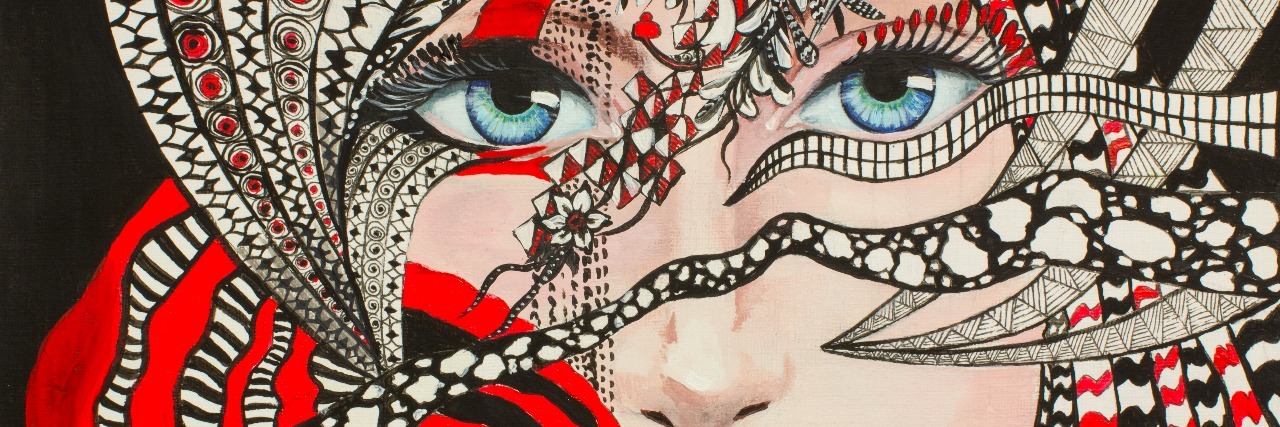Personally, I am not the biggest fan of labels. I fully respect the people who set out to find the one that fits them the best but for me, the majority of the time I don’t see the point in them. I often find them more destructive than helpful as people can sometimes get caught up in the trap of forcing themselves to “fit the diagnosis.”
However, at the same time, I completely understand how it feels to get a diagnosis and get that overwhelming sense of belonging and finally feeling like you belong to a community of likeminded people. I have experienced both of these. And when my diagnosis changed, I felt them both at the same time.
I have borderline personality disorder (BPD). Often it cannot be diagnosed until the person reaches the age of 18, which is how it went for me. However, at the age of 14, I was diagnosed with depression. Suddenly, when I moved to go to university and had to join a different mental health team, I got reassessed and was told I didn’t have depression after all. Yes, I was depressed, but it was a depressive episode in a BPD diagnosis. This was completely new to me because BPD had never been mentioned to me in the four years I was receiving help for my apparent depression.
It felt like the world had come crashing down. For a while I had known a depression diagnosis did not quite fit me. I was too impulsive, I often didn’t feel emotions but the times when I did, they would be so indescribably intense. I didn’t seem to “tick” the right boxes for depression symptoms. Still, I was told at a very young age it was what I had so, of course, I believed it. When I was told that I wasn’t depressed, I tried desperately to convince them I was. It seems so silly to look back on, but I essentially argued with mental health professionals about diagnostic criteria to try to prove to them I was depressed. I didn’t feel strongly attached to the diagnosis, but I felt like they were calling me a liar or a fraud and that all of the hard times I had faced were for nothing.
And then they explained borderline personality disorder to me. And I suddenly felt this strange sensation as if I had been doused in cold water and awoken from a deep sleep with a shock. It made so much sense to me, suddenly I the ticked boxes of a diagnosis and I was able to make sense of the way I felt. And I’m so glad that it happened.
But the change of diagnosis didn’t feel good. In fact, it felt catastrophic. It was as though everything I was finally getting around to dealing with had suddenly been stripped away from me and I had been dropped into unfamiliar territory and given an entirely new battle to fight. I felt suicidal. I didn’t want to have to go through it all again. But it was a blessing in disguise.
I deeply distrusted the mental health system for a while after that. It felt like they had lied to me all that time about having depression when I didn’t. Now, of course, I fully understand why they didn’t tell me earlier, but at the time I was furious. But this experience made me realize I was clinging too much to a diagnosis to tell me who I was. I realized regardless of what word(s) were on a piece of paper next to my name, how I felt hadn’t changed. My feelings remained as valid as they always were. They were just called something different now.
My diagnosis changing taught me how to not cling to labels. It taught me to focus more on my feelings and how they were affecting me instead of trying to figure out why I didn’t “feel depressed” properly. I realized it didn’t matter what condition they put beside my name because, whatever it read, I would get help for it. No matter what I had, I could keep trying to get better the way I always did.
My diagnosis changed. But my world didn’t. A new condition’s name did not strip me of how I felt. I was still valid. How I felt was still valid. It was still OK to not be OK.
If you or someone you know needs help, visit our suicide prevention resources page.
If you need support right now, call the National Suicide Prevention Lifeline at 1-800-273-8255 or text “START” to 741-741.
We want to hear your story. Become a Mighty contributor here.
Thinkstock photo via LanaBrest.

